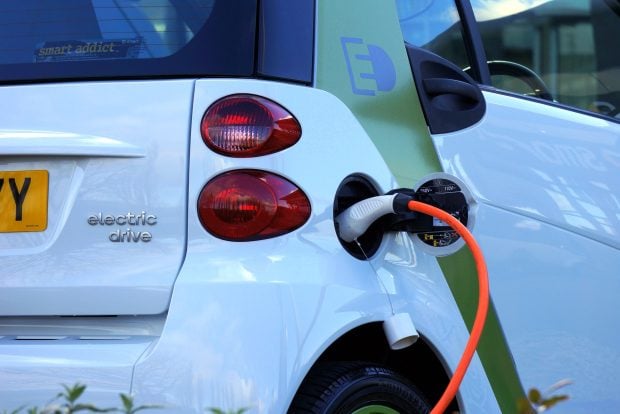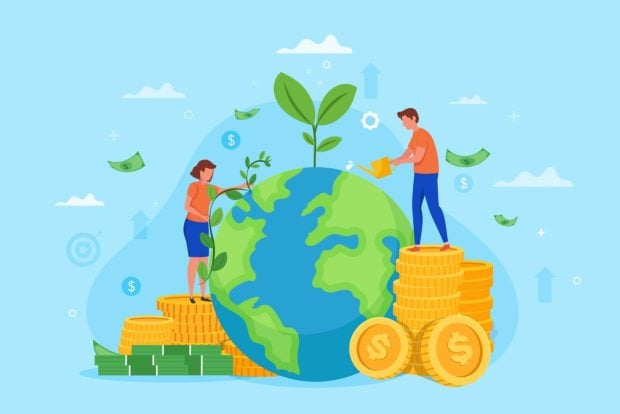Sustainability takeaways from Innovation 2025

Global Government Forum has used an artificial intelligence tool to analyse all the sessions at the Innovation 2025 conference for takeaways on how governments are tackling climate change and working towards sustainability goals.
This summary was generated using the Notebook LLM tool, which analysed recordings based on a prompt from GGF.
Sustainability emerged as a significant theme across various sessions at the conference, with discussions touching upon environmental, economic, and social aspects, often linked with innovation and government missions.
Areas where governments are focusing on improving sustainability
- Environmental sustainability and net zero: A prominent focus is on achieving environmental sustainability, with the UK government setting a mission to become a “green superpower“. This involves efforts to move away from dependence on fossil fuels and build the infrastructure for a cleaner energy system. The conference highlighted that reaching net-zero targets is a struggle for many governments, including Norway.
Read more: ‘Incredibly bold’ UK missions driving a more agile civil service, say speakers at Innovation 2025
- Mission-oriented innovation: The concept of mission-oriented innovation is seen as crucial for achieving big sustainability goals like carbon neutrality. Governments are adopting mission-led approaches to tackle these long-term and systemic challenges, requiring whole-of-government and whole-of-society changes.
- Sustainable procurement: Governments are increasingly using public procurement as a strategic tool to drive sustainability objectives. Austria, for example, has strategies focusing on both innovation and sustainability in procurement, aiming to stimulate the market for small and medium-sized enterprises while promoting sustainable solutions. There’s a growing understanding that procurement can contribute to better value for money, higher quality services, and strategic targets related to sustainability and achieving Paris Agreement goals. The new UK Procurement Act aims to be more innovation-friendly and support the delivery of government missions, which include environmental goals.
- Data and measurement: The importance of data and measurement in understanding and addressing sustainability challenges was also discussed. Just as with innovation, it’s considered vital to “make the important measurable” in areas like environmental impact. The need for better measures related to global challenges like climate change was highlighted, as understanding the problem requires sophisticated data collection.
- Long-term perspective: Achieving sustainability requires a long-term focus that extends beyond short political cycles. Maintaining top-level support for these enduring ambitions can be difficult amidst changing political priorities.
- Economic sustainability: The transition towards greener solutions is also viewed from an economic sustainability perspective. For a country like Norway, which has heavily relied on oil income, the move towards a greener future is seen as crucial for long-term economic stability. Ireland’s digital strategy also factors in the benefits of digital transformation for job creation and stimulating the economy.
- Social sustainability: While not as explicitly detailed as environmental aspects, the emphasis on citizen engagement in government and ensuring digital services are accessible to all citizens touches upon aspects of social sustainability and inclusivity in the context of government transformation.
- Governance sustainability: The need for institutional settings that enable digital transformation and the importance of collaboration and harmonisation of public policies contribute to the overall sustainability of government operations and its ability to address long-term challenges.
Making and measuring progress towards net zero and other sustainability areas
- Setting missions and targets: Governments are setting missions like becoming a “clean energy superpower”, as in the UK, and outlining strategic objectives related to sustainability. However, the conference acknowledged the challenge of translating these into practical action and measuring progress.
Read more: Integrate mission governance into climate policy, says OECD
- Leveraging procurement: Procurement is being used as a mechanism to challenge suppliers to develop green solutions and to direct public spending towards more sustainable options.
- Data collection and analysis: The discussion around data standards and libraries suggests an ongoing effort to improve the collection and sharing of data relevant to various aspects of sustainability. However, the difficulty in measuring the benefits of such foundational work was also noted.
- International benchmarking: Tools like the Blavatnik Index and the World Bank’s GovTech Maturity Index provide a way to benchmark national civil services and digital development, which can indirectly highlight areas where countries are progressing or lagging in aspects related to governance and service delivery that underpin sustainability efforts.
- Focus on outcomes: There’s a push to focus on the outcomes that governments want to achieve through technology and innovation, including those related to sustainability, rather than just adopting technology for its own sake.
Upcoming webinar: Confident decision-making for better outcomes in government
- Challenges in evaluation: The conference highlighted that evaluating innovation, especially concerning long-term outcomes and impact, is an underdeveloped area. This includes the difficulty in measuring the effectiveness of sustainability initiatives and their contribution to overarching goals like net zero. Evaluation often focuses on justifying expenditure rather than assessing the ultimate impact on sustainability outcomes.
Other areas of economic, social, environmental and governance sustainability
Beyond the prominent focus on environmental sustainability and net zero, the discussions touched upon other facets:
- Economic sustainability: As mentioned, this includes fostering economic growth through digital transformation and supporting small and medium-sized enterprises via procurement.
- Social sustainability: The emphasis on citizen engagement and digital accessibility indicates a focus on ensuring government services are inclusive and meet the needs of all members of society. The discussion on building trust in government’s ability to deliver public services is also relevant to social cohesion.
- Governance sustainability: This involves creating effective institutional frameworks for digital transformation, promoting collaboration across government levels and with external stakeholders, and ensuring the civil service has the necessary skills and capacity to drive long-term change. The discussion on ethical considerations in AI [implicit in earlier summary provided] also underpins responsible and sustainable governance.
Innovation highlighted that sustainability is a multifaceted challenge for governments, with significant attention directed towards environmental goals and achieving net zero. Innovation, strategic procurement, data-driven decision-making, and a long-term perspective are considered key enablers. However, challenges remain in effectively measuring progress and ensuring that sustainability efforts are deeply embedded across all areas of government and society.
This summary was created using Notebook LLM based on the following prompt: Provide a summary of the key issues relating to sustainability in government as part of Global Government Forum’s Innovation conference. Provide a summary of the key areas where governments are focusing on improving sustainability, as well as how they are making – and measuring – progress towards net zero, and other areas where governments are focusing on economic, social, environmental and governance sustainability.





















